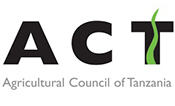Environmental Sustainability
Conserving Crop and Forest Land
ACT promotes innovations and sustainable practices in environmentally sensitive areas. Sustainable practices continue to be promoted and extension services intensified to encourage the adoption of sustainable practices in the area. ACT under the PFS project with the partnership of WWF is expecting that more than 1,200 ha of forestland in the Kilombero landscape will be restored.
Correspondingly, a special focus is on the Lindi and Mtwara regions which account for 35% of the total sesame exports in Tanzania. Production which is associated with significant environmental degradation in the regions has been singled out as a major source of deforestation in the two regions due to shifting cultivation. The goal of this intervention is to promote sustainable practices that will lead to enhanced production and increased productivity. This will incentivize farmers to retain manageable farmlands without necessarily shifting them. It also applies to other areas where PFS partners with WWF.
Promoting Sustainable Water Management
ACT does not only promote technologies but also engages farmers in deliberate initiatives that ensure their stewardship of natural water resources for sustainable water management. It sensitizes and trains farmers in sensitive areas on the management of natural resources. It facilitates increased participation of farmer organizations in the water users' associations and other water resource management bodies at the local government level.
Promoting IGG Tool Kit
ACT plans to work with SAGCOT and other stakeholders to promote the IGG tool kit and ensure a positive pull factor from investors in the corridor. This will be done by working with members of the program. IGG is an environmental and social compliance tool developed by SAGCOT and its partners (the Green Reference Group) as a guide for private sector investors in the corridor. It is a voluntary tool that serves as a sign of environmental responsibility by companies. Incentives like reputation and recognition by the government and private sector bodies will be introduced to accelerate the adoption of the IGG in the corridor.
